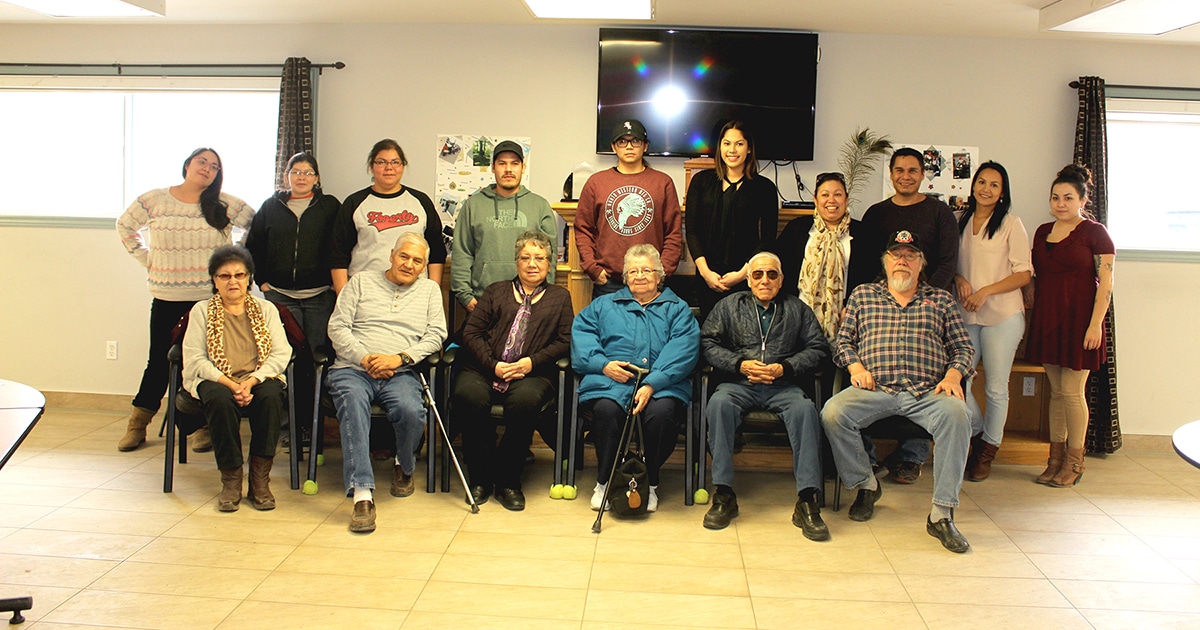An estimated 26,000 people are members of the Six Nations of the Grand River, with approximately 14,000 living on reserve. The Onondaga are one of six Haudenosaunee (Iroquois) nations that make up the Ontario community, the largest First Nations reserve in Canada. However, the demographic prominence of the Onondaga in Six Nations is not reflected in the number of native speakers of the Onondaga language.
Karen Sandy, coordinator of the Six Nations Language Commission (SNLC), estimated that there are fewer than 10 people who speak Onondaga as their first language. “That really is a major challenge for us,” she said.
The Anglican Healing Fund recently donated $10,755 to support the SNLC’s Onondaga Language Adult Immersion Program. In addition to furniture, the grant includes funds for audio-visual equipment, computers, and software that serve vital functions such as recording songs or stories from elders.
Now in its tenth year of operation, the SNLC seeks to revitalize all Haudenosaunee languages in the territory and currently offers instruction programs for the Cayuga, Mohawk, and Onondaga languages. Though there are six different languages spoken in Six Nations, the SNLC can only afford revitalization efforts for the aforementioned three.
Compared to Cayuga and Mohawk, the Onondaga language is at somewhat of a disadvantage. In addition to having far fewer native speakers, unlike the other two languages Onondaga is not offered in the public school system.
Furthermore, the small number of native Onondaga speakers has not always translated into effective teaching.
“Just because a person is a fluent speaker, they’re not always a teacher, so that’s the challenge we had there,” Sandy said. “What we focused on in the last few years was building up second-language speakers to become teachers.”
In recent years, the SNLC has taken on new instructors for its language programs. Students are primarily young adults, who are often part-time or supply teachers themselves outside the language courses. Classes run for seven hours each day from Monday to Friday, taking place in the heart of downtown Oshweken.
Sandy described the goal of the Onondaga Language Adult Immersion Program as the creation of a “critical mass” of speakers who will then use the language in their daily lives, leading to more people in the community speaking Onondaga.
“Basically, it’s our identity—I mean, that’s the key there,” Sandy said. “If we don’t have a language, we might as well just be a municipality … There’s not only just the language, but there’s so much more that has evolved with it, like the transfer of Indigenous knowledge … We have to be able to carry the language on, tell our children who they are.”
“Our vision is that in the future, all our Haudenosaunee languages will be living languages, and chosen as the ordinary mean of communication for everyday use,” she added.
There are currently several students participating in the Onondaga immersion program. One challenge for many of the students is being able to take time off work for language study while still covering their living expenses. “It’s almost like they have to take a vow of poverty just to preserve our languages,” Sandy said.
As a result, any additional funding is welcome. While the grant from the Anglican Healing Fund has gone primarily to technology to help facilitate language instruction, a potential future goal for the SNLC is a small stipend that might help cover the expenses of language students.
“We really appreciate the support that the Anglican Church is able to provide,” Sandy said. “As our aging population of first-language speakers is declining, we’ve got to really put a lot of effort into creating this critical mass of second-language speakers.”
Interested in keeping up-to-date on news, opinion, events and resources from the Anglican Church of Canada? Sign up for our email alerts .

